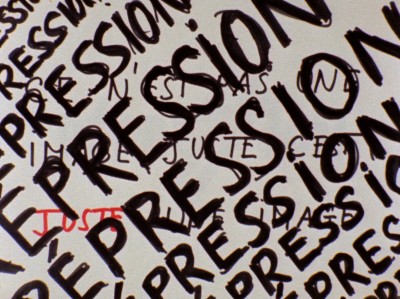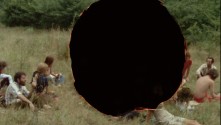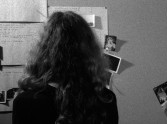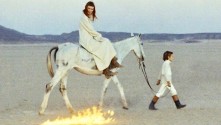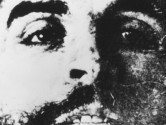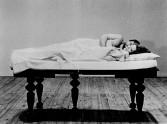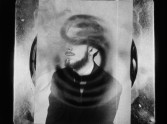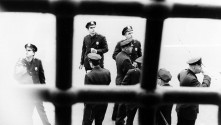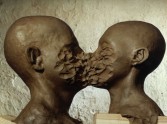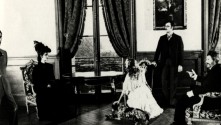
The Fall
UK, 1969, DCP, color and b&w, 116 min.
DCP source: Contemporary Films
Few films could offer a better introduction to the context of the late 60s out of which Afterimage emerged than The Fall, the major and ambitious work of the very individual British filmmaker Peter Whitehead. Embedded in the counterculture of the 60s he made some of the most legendary documentaries of the period: Wholly Communion (1965), documenting a major poetry event in London’s Albert Hall with Allen Ginsberg and other members of the Beat Generation; Charlie is My Darling (1966), featuring the first Stones tour of Ireland; and Tonite Let’s All Make Love in London (1967), a celebration of “Swinging London.”
In The Fall, shot largely in New York between October 1967 and May 1968, Whitehead— his own cameraman, editor and producer—also stars as a filmmaker in search of himself. The film is laced with rock music and fast edits, covering New York culture and political upheaval at the time of Vietnam War and radical Black protests. Finally he finds himself involved directly in the conflicts between police and students at Columbia University.
At the time of the rediscovery of Whitehead’s films in France in 2007, critic Nicole Brenez’s enthusiastic description of Whitehead’s work especially applies to The Fall: “From plastic abstraction to documentary reportage, from psychic investigation to political pamphleteering, from the autobiographical essay to a demonstration of the powers of montage, from graphic and textural work to militant revindication—Whitehead’s work accomplishes an exceptional synthesis, open to every different dimension of avant-garde cinema, tending towards perpetual explosion and euphoric fusion with phenomena.”
Afterimage 1 featured a long essay on The Fall. We must confess a vested interest: Whitehead, who published a number of filmscripts by Godard and others under his own Lorrimer imprint, was also a founding father to Afterimage and bankrolled the first two issues.

